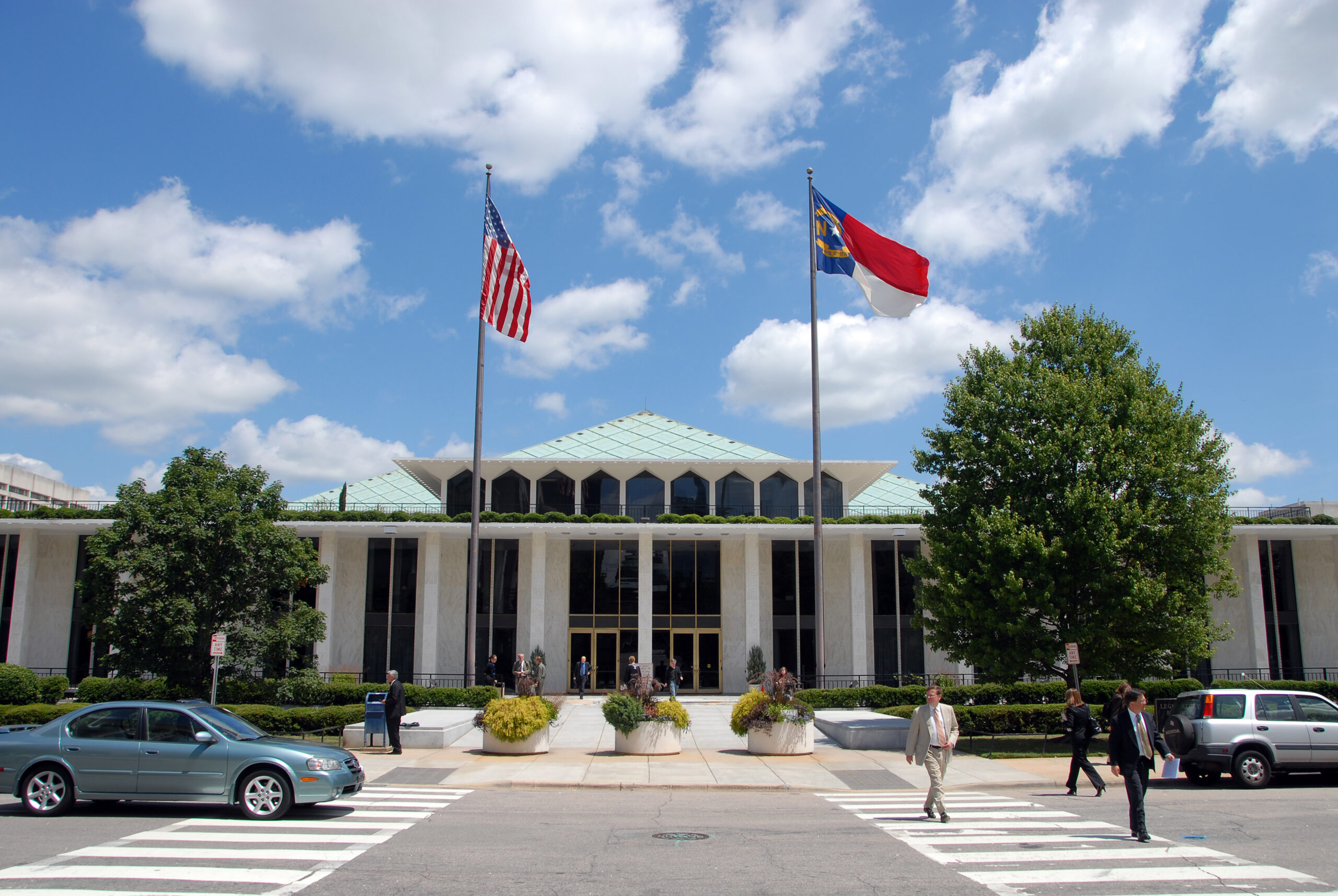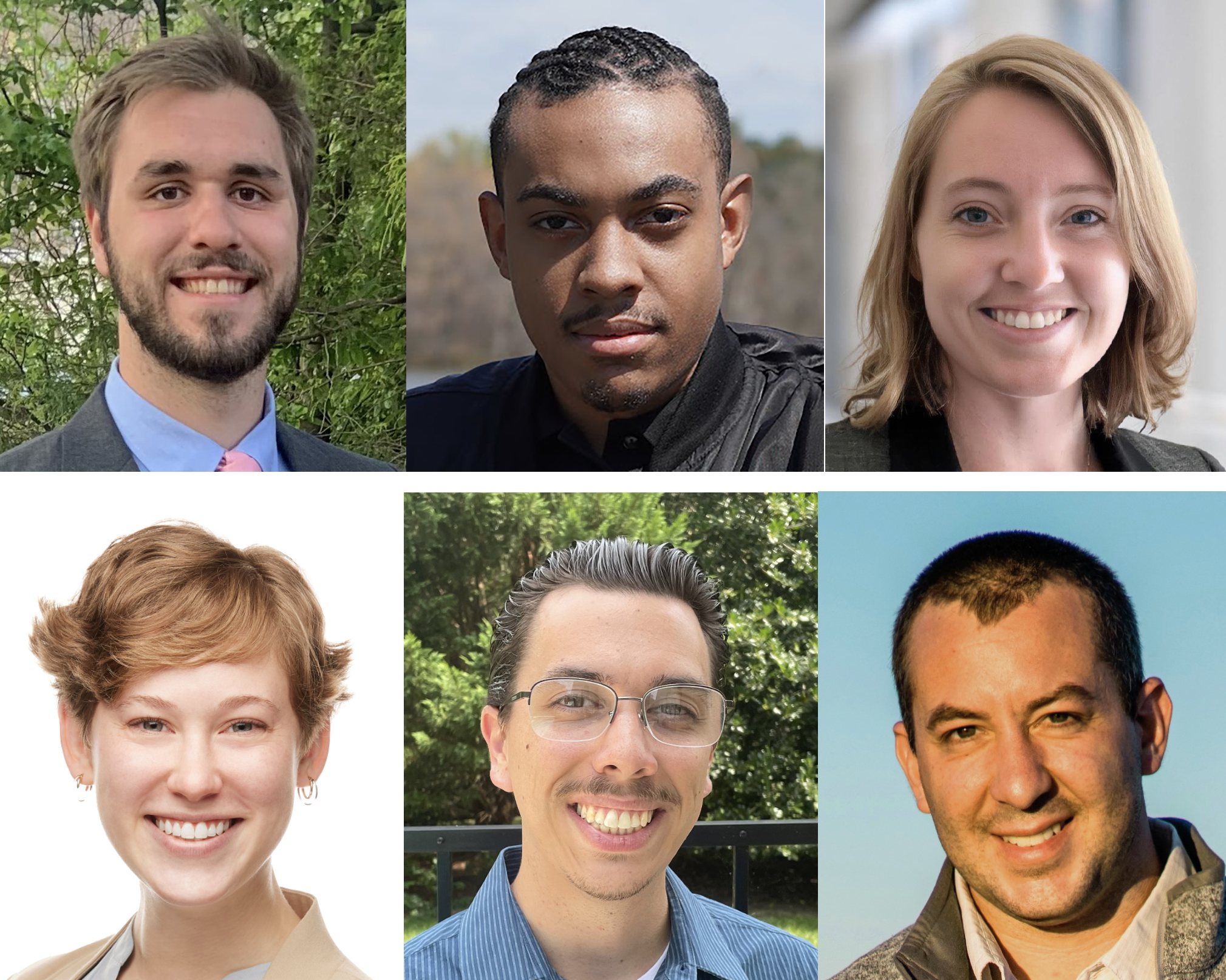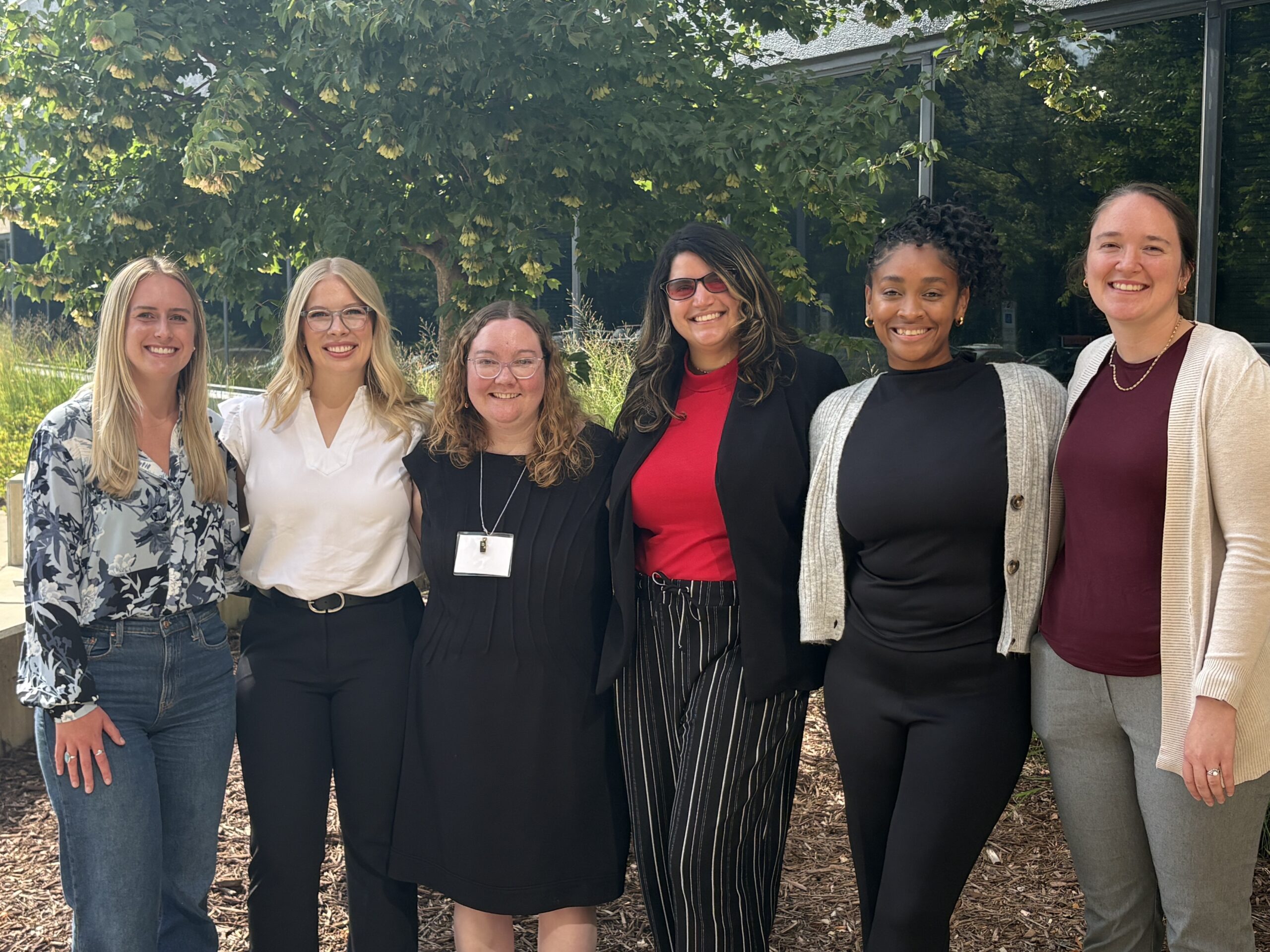North Carolina Sea Grant Names Six 2023 STEM Policy Fellows


Contact: John Fear, jmfear@ncsu.edu.
North Carolina’s newest STEM Policy Fellows are beginning their year-long assignments in high-level state agencies. Now in its fourth year, the fellowship program provides opportunities for recent graduate students to explore in-state, non-academic career options in science, technology, engineering, and mathematics.
“We are so excited to see the NC STEM Post-Graduate Fellowship program continue to expand,” says John Fear, deputy director of North Carolina Sea Grant. “It increases our ability to retain great talent within our state.”
North Carolina Sea Grant administers this fellowship, thanks to a generous matching grant from the Burroughs Wellcome Fund, as well as support from several host offices. Among the hosts is the Office of Science, Technology, and Innovation in the Department of Commerce.
“Our mission is to improve the economic well-being and quality of life for all North Carolinians through advancing science, technology, and innovation,” says David Kaiser, deputy director for the office’s Board of Science, Technology, and Innovation. “In doing that, we work with economic developers, business leaders, and government officials regularly, and hosting a fellow that’s an expert in their STEM field is a natural fit and should help bridge the gap between science and policy.”
Alexander Costantini, who is finishing his master’s degree at North Carolina State University in food science, will serve in the Office of Science, Technology, and Innovation.
“I am very excited to be working with the wonderful people at the Office of Science, Technology, and Innovation,” says Costantini, whose studies primarily focused on the use of wild yeast strains for commercial brewing. “I look forward to learning how policies and programs are developed at the state level, as well as doing my part to advance the state’s economic growth.”
Corrado Harper will receive his Ph.D. in August from NC State University, where he has studied materials science and engineering. He will serve in the Department of Commerce’s Office of the Secretary.
“I hope to get a rigorous mentorship to prepare me for a career in diplomacy and policy,” says Harper.
Kathryn Little is studying coastal and ocean policy for her master’s at the University of North Carolina Wilmington, where she assesses the viability of water quality trading markets to different regions of North Carolina to leverage solutions for nutrient pollution. She will serve with the NC Department of Transportation (NCDOT).
“I am excited about my placement in the NCDOT,” says Little. “Every entity and person within North Carolina rely on the transportation infrastructure, and I look forward to interacting with a wide variety of stakeholders to gain a better understanding of the challenges that face North Carolina in achieving its sustainability and resiliency goals.”
Megan Damico holds a Ph.D. from the University of North Carolina at Greensboro, where she studied how the environment affects the gut microbiome of honeybees. She received a bachelor’s degree in biomedical sciences as a first-generation college student from Grand Valley State University.
“I love thinking outside the box and merging my love of science with policy to create new opportunities for North Carolinians,” says Damico, who will serve with NC Biotech. “In this sense, I plan to continue growing my relationships at NC Biotech and building my experience working in highly collaborative and fast-paced environments.”
Steven Porson is pursuing a doctorate in geography and earth science at the University of North Carolina at Charlotte, focusing on the link between climate change and agrarian society. He will serve with the North Carolina Office of Recovery and Resiliency.
“At the Office of Recovery and Resiliency I hope to gain some experience in this sector and help produce resilient ecological policies that can support our underserved communities,” says Porson.
Aaron Ramus received his doctorate in marine biology from the University of North Carolina Wilmington, where he studied how seaweeds influence animal communities and ecosystems, which, in turn, impact people. A former joint fellow with North Carolina Sea Grant and the N.C. Coastal Reserve and National Estuarine Research Reserve Program, Ramus will serve with the State Energy Office.
“The STEM Policy Fellowship provides an invaluable opportunity to get involved with the processes through which science informs important decisions affecting our natural resources at the state level,” says Ramus. “I look forward to applying skills developed through my scientific research and education to make real-world impacts and contribute to the state of North Carolina.”
To prepare for their appointments, fellows participate in professional development sessions in science policy and communication, an opportunity developed in partnership with Sigma Xi, a scientific honor society based in Research Triangle Park.
More about NC STEM Policy Post-Graduate Fellowships.


